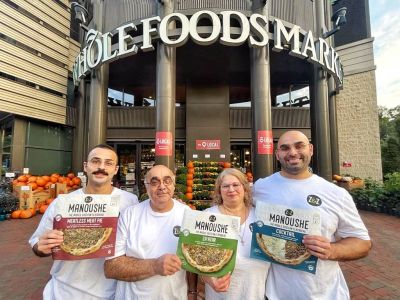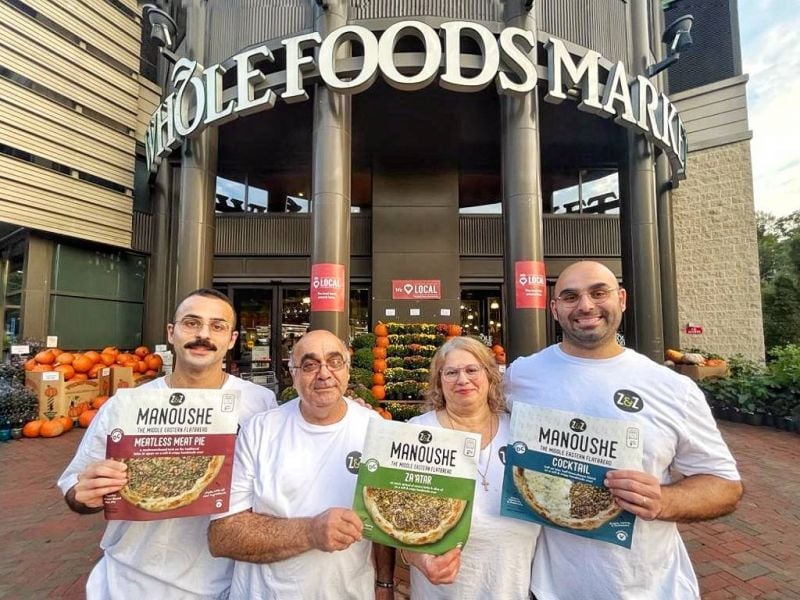
Dubbaneh frozen manouche on sale at Whole Foods. (Courtesy of: Ronnie Dubbaneh)
Ronnie, Johnny and Danny Dubbaneh are the sons of Palestinian-Jordanian immigrants who settled in Maryland.
Despite spending free time in their father’s “typical American” restaurant as children, once home, the brothers would eat Levantine dishes concocted by their grandmother and mother.
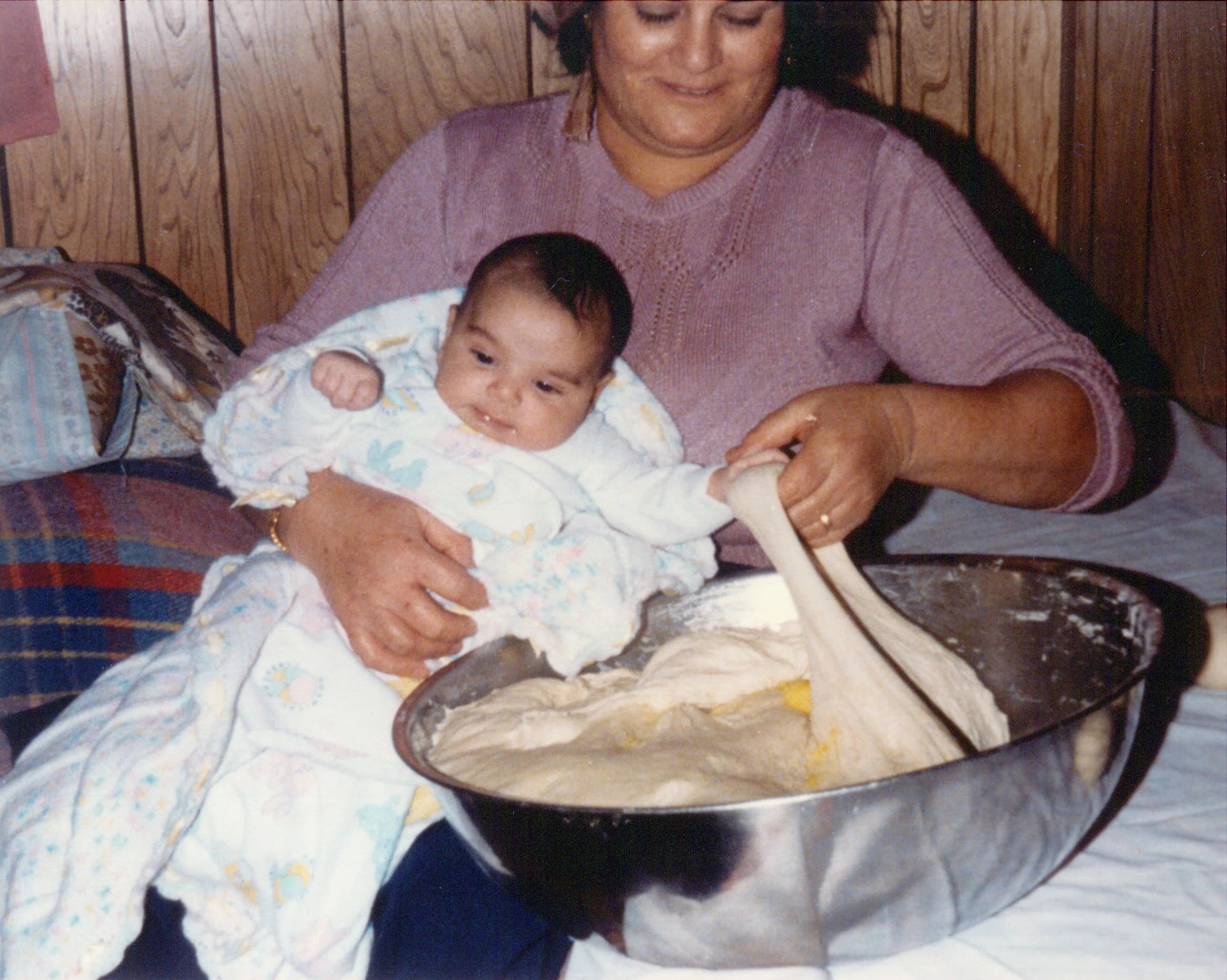 A grandmother teaches her grandchildren how to make bread early on. (Courtesy of: Ronnie Dubbaneh)
A grandmother teaches her grandchildren how to make bread early on. (Courtesy of: Ronnie Dubbaneh)
When they went to school, their mother would slip labneh and zaatar sandwiches into their bags, something classmates would tease them for.
Years later, the classic “manoushe” makes an entrance into American supermarkets thanks to the three brothers.
“It’s important that Levantine food is represented and finds its place,” Ronnie tells L'Orient-Le Jour. “During our childhood, we were criticized for being different.”
Ronnie dislikes talking about those times when at school, he would hide his homemade sandwiches out of embarrassment.
Today, he wants to “educate” people and “normalize” certain foods in the US.
The parents and grandparents of the Dubbaneh brothers moved to the United States in the 1980s from Jordan. Their father soon went into the restaurant business to support the family and would go on to warn his children:
“Stay away from the restaurant business. Go to school and get a job.”
The three brothers along with their two sisters complied and pursued higher education.
‘Is that pizza?’
By 2016, the idea of going into the restaurant business began to dawn on Johnny, the youngest of the brothers. He studied business and worked as a consultant but was becoming eager to start his own endeavor.
He first considered selling falafel and hummus but realized that manaeesh had always had a special place in their home.
This nostalgic idea prompted him to develop an entire concept, and soon Zayt & Zaatar (Z&Z) was born when the family set up a booth at the Foggy Bottom Farmers Market in Washington, DC. Many people asked, “Is that pizza?” Yet, others — mostly Lebanese, Palestinians and Jordanians — recognized the smell of zaatar from afar and were happy to see manaeesh at the market.
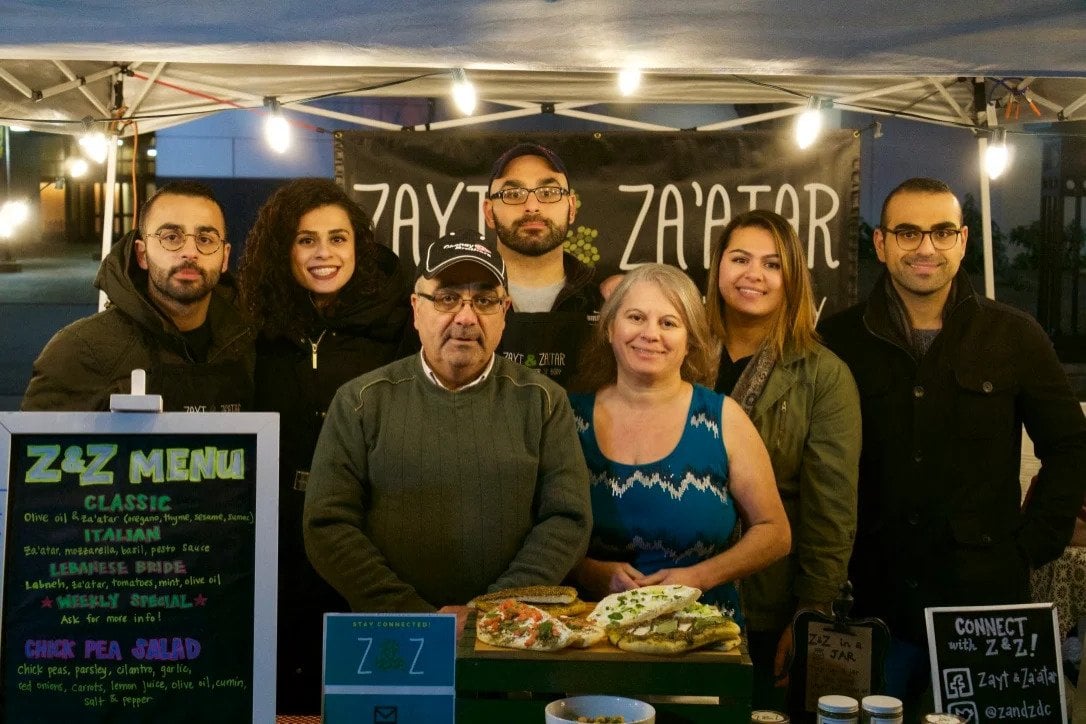 The Dubbaneh Family at a farmers market. (Courtesy of: Ronnie Dubbaneh)
The Dubbaneh Family at a farmers market. (Courtesy of: Ronnie Dubbaneh)
“We want [the] manoushe to become as popular as pizza,” says Ronnie.
In 2017, Johnny quit his job. A year later, his brother Danny did the same. Soon, the entire family offered their support.
Their presence at markets around town quickly grew, prompting them to hire a design office in Beirut, the Wonderful Bureau, to create a logo and brand image for the growing business.
Besides manaeesh, they sell spices like zaatar and sumac in markets and small stores. On Amazon, their zaatar — which they import from Jenin (Palestine) and blend in the US — is a bestseller.
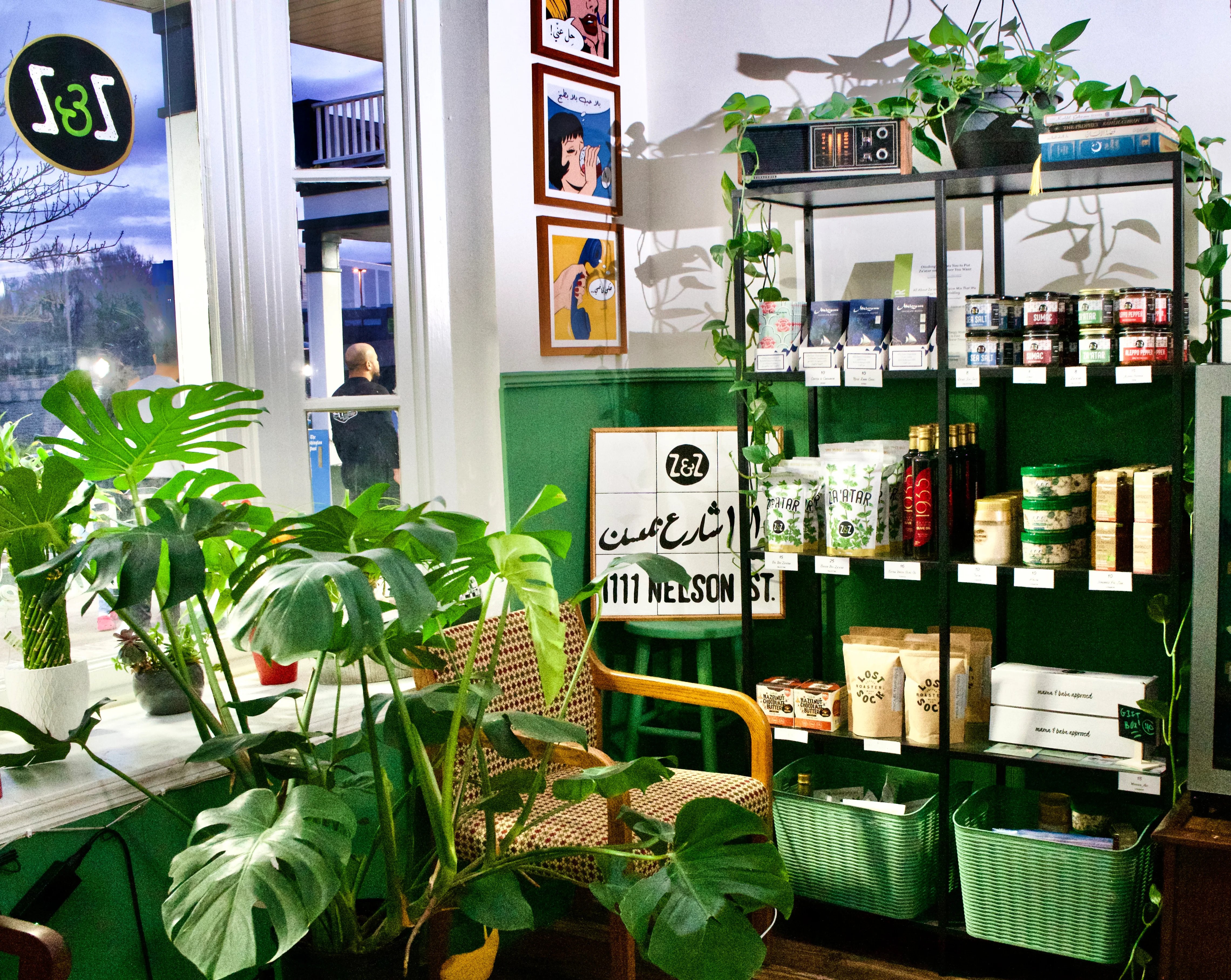 At the bakery, the Dubbanehs also sell items imported from Lebanon. (Courtesy of: Ronnie Dubbaneh)
At the bakery, the Dubbanehs also sell items imported from Lebanon. (Courtesy of: Ronnie Dubbaneh)
When the Dubbaneh brothers began to consider opening a restaurant, they set their eye on one particular space in Rockville, Maryland, near DC: the place their grandfather had run his own restaurant between 1982 and 2006. However, the space was now a pizzeria.
Persistent, Johnny contacted the new owner and managed to seal the deal. The pizzeria soon became the Dubbanehs' bakery. The brothers surprised the whole family with a visit to the place. They even found their grandfather's handwriting on the restaurant's switchgear cubicle.
Z&Z opened its doors on Sept. 23, 2021, on Zaatar Day, and less than a year later, the US Bon Appetit magazine ranked Z&Z in its top 50 best new restaurants of 2022.
“It feels good to be recognized, we've been working hard the past few years,” Ronnie says.
Frozen manakish
The bakery’s menu offers classic zaatar and cheese manaeesh in addition to the “Labne Lebanese Bride” — otherwise known as aarous in Lebanese colloquial Arabic (which also means sandwich) — an item inspired by their father’s trips to Zahle in Lebanon.
“My father used to go there every summer to visit his uncle. He would stop at a dairy and order a labneh sandwich,” says Ronnie.
Their father, who had once advised them against entering the restaurant business, now visits the bakery every day and, apparently, cannot be happier.
“He doesn't know how to rest,” Ronnie says.
“Our customers started asking if they could freeze manaeesh and that gave us ideas, says Ronnie. “If we can sell a frozen pizza, why not a manoushe?”
Danny and Johnny, the “dough experts,” began to experiment: they sampled frozen pizzas and made different manoushe dough recipes which they froze and tested at family tastings.
The brothers did their experiments "until we got our parents’ approval," says Ronnie.
After a year of trial and error, they finally had the best possible product on their hands.
They launched their frozen manaeesh in August 2020, after the Beirut port explosion. Proceeds from the sales went to the Lebanese Red Cross.
To avoid the complications and expenses of delivering the frozen foods themselves, the family proposed their product to supermarkets, including Whole Foods, the organic supermarket chain owned by Amazon.
“We presented our product to them, and they loved it,” the brothers say.
As of November 2022, the manaeesh hit the shelves of the frozen food aisles in more than a dozen supermarkets in DC, Maryland and Virginia.
This article was originally published in French in L'Orient-Le Jour. Translation by Sahar Ghoussoub.
